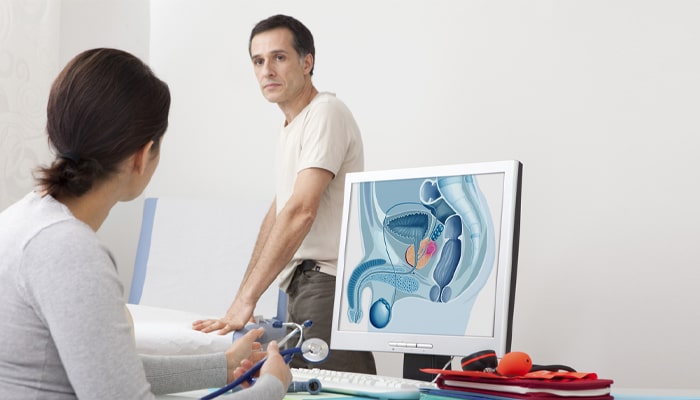Facts About Prostate Cancer
What is Prostate Cancer?
Prostate cancer impacts the prostate gland, which is the gland that forms fluid in semen and plays a key role in urine control in males. The prostate gland lies just below the bladder and opposite to the rectum.
Nowadays, it is the most common cancer seen in males but is also treatable if diagnosed in the early stages. Testing regularly becomes very crucial as the cancer requires to be diagnosed before metastasis.
What Causes Prostate Cancer?
The prostate is a walnut-sized exocrine gland and produces a fluid that nurtures and transfers sperm on their passage to combine with a female ovum, or egg, in turn, produce a human life. The prostate contracts as well and ejects these fluids out during orgasm.
The prostate secretes a protein named prostate-specific antigen (PSA), which assists semen in retaining its liquid phase. Too much of this protein in the blood is one of the initial symptoms.
What are the Symptoms of Prostate Cancer?
The prostate cancer signs may be different for every man, and any one of these signs can result from other conditions.

- Blood in the urine
- Trouble in beginning and maintaining urination
- Frequent urges to urinate, including at night
- Trouble in achieving or maintaining an erection
- Painful urination and, less frequently, ejaculation
- Urinary incontinence, fecal incontinence, leg weakness (if it goes to an advanced stage)
Prostate Cancer Treatment:
Treatment is diverse for Early as well as Advanced.
Early-Stage Prostate Cancer:
If the tumor is tiny and localized, it can generally be managed by one of the following treatments:
- Attentive waiting or monitoring: the blood levels of PSA are regularly monitored, but there is no instant action. The risk of side effects at times outweighs the requirement for an instant medical treatment for this slow-developing cancer.
- Brachytherapy: in this treatment method, the radioactive seeds are implanted into the prostate gland to deliver the targeted radiation treatment.
- Intensity-modulated radiation therapy: in this advanced form of radiotherapy, beams with uneven intensities are used.
- Radical prostatectomy: in this method, the prostate is surgically removed. The recovery time in this lies up to 3 months.
- Conformal radiation therapy: Radiation beams are shaped so that the area where they overlap is as close to the similiar shape as the organ or the area that needs treatment. This lowers the exposure of healthy tissue to radiation.
In the early phases, patients may receive radiation therapy in combination with hormone therapy for a period of four to six months. Treatment suggestions may be based on individual cases. The patient must talk about all the accessible treatment options with their urologist or oncologist.
Advanced Prostate Cancer:
Advanced cancer is known to be more aggressive and can spread further all through the body. It can be recommended to go for chemotherapy sessions, as it is found to kill the tumor cells around the body. Androgen deprivation therapy (ADT), is another hormone treatment known to lower the effect of androgen. Androgens are nothing but some male hormones that have the ability to lower tumor growth. ADT process is found to slow down and even prevent the growth of cancer by decreasing the levels of androgens. The patients would most likely need long-term hormone therapy.
Prostate Cancer Medications:
There are many drugs approved for the treatment of prostate cancer including:

- Apalutamide
- Bicalutamide
- Cabazitaxel
- Docetaxel
- Flutamide
- Lupron (Leuprolide Acetate)
- Nilutamide
- Sipuleucel-T
- Xtandi (Enzalutamide)
- Zytiga (Abiraterone Acetate) and many others.
Thus being diagnosed with prostate cancer might give rise to a range of feelings, like fear, anxiety, or low self-esteem. While every person finds their way to deal with it, hope this information helps you.

